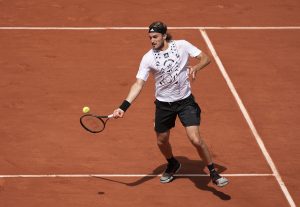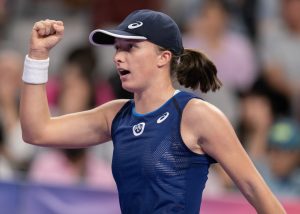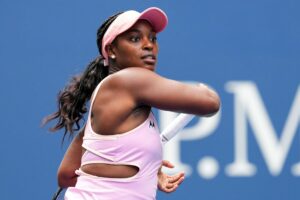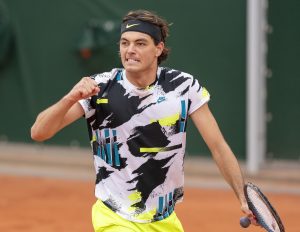What is the combination of talent and hard work that allows one to unlock their true potential or at least reach a part of it? Is it 50/50? 60/40? , 40/60? It’s not an objective question, but a subjective one, but one must have the innate talent first to believe in himself and then hard work comes into play.
The talented
Talent can be classified at least from the human perspective as something which is done with less effort, looks aesthetic, and gets the maximum result without a serious exertion of power. Some of the players blessed with something extra from above would include John McEnroe, Roger Federer, Marcelo Rios, David Nalbandian, Roger Federer, Fabio Fognini, and the likes.
For these wizards, the racquet is like a wand where they redirect shots with ease, inject pace whenever they want to, and use feathery touch to stop the ball on a dime. It seems that they are never out of position, off-balance, or scrambling on defense, and the ball somehow like a magnet is attracted to their racquet while other mortals need to move to it.
They rarely seem to sweat and if they do it’s hardly noticeable. The terms maestro, genius, gifted are associated with these types of players
The hard workers
The hardworking stalwarts would include players such as Novak Djokovic, Rafael Nadal, Dominic Thiem, Andy Murray, Gael Monfils, Thomas Muster, Lleyton Hewitt, Diego Schwartzman, etc. These pros are incredibly talented no doubt but an element of hours spent in the gym, hustling to the ball, stretching, sweating stand out when they play.
These incredible pros are labelled terms such as the beast, machine, street-fighter, and dogged. The hard workers need to be in a top physical condition when they play and are more prone to injury due to the constant stress and strain on the joints. To beat this group of players it’s tough to rely on physical conditioning alone.
Talent in many cases helps shoot them down such as by taking the ball early, having an acute sense of angles, excellent volleys, and deft touch.
A subjective comparison
The talented know that if they are in excellent physical condition, with their preternatural abilities they will always stand a chance against the hard-working group. The hard-working group on the other hand cannot afford a drop in their physical conditioning. Soft hands, early ball striking, above-average tennis IQ will always be there, but physical conditioning is something one has to always keep up with and train for.
Talent + Hard work
Not too many players come to mind who leapfrogged in the rankings or won a big title at a late stage in their career. But to refresh anybody’s memory players such as Nikolay Davydenko, Stan Wawrinka, and Robin Soderling do exist.
Davydenko jumped from a ranking of 28 at the end of 2004 when he was 23 years old to 5 by the end of 2005 and stayed in the top 10 for the next 4 years, with the highlight of his career his 2009 triumph at the ATP Finals.
Wawrinka, meanwhile, won his first Grand Slam at the age of 28! in 2014 and won another 2 majors in 2015 and 16 going 3-0 in major finals steamrolling the likes of Nadal and Djokovic. Robin Soderling whose blooming career was cut short unfortunately due to a severe case of mononucleosis reached two Grand Slam finals and won the Paris masters all after the age of 23 before which he had never made it past the third round of a Grand Slam.
These are a few examples of players who always had the talent but sheer hard work, focus and dedication helped them break the glass ceiling and take their game to the next gear. Talent will take to a base level which hard work won’t but after reaching that base level a great degree of hard work is involved to make the jump from good to great.
Main photo from Getty Images.






